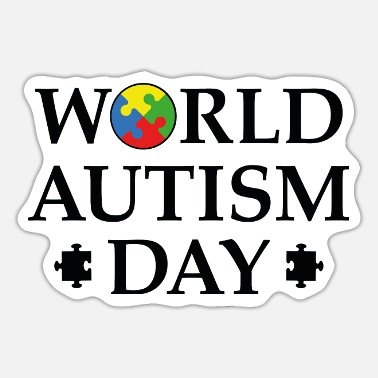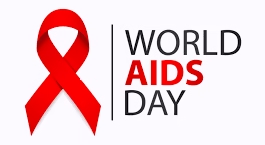The Impact of Autism in Our Communities
Autism is a complex neurodevelopmental condition that affects individuals in diverse ways, contributing to a rich tapestry of experiences and perspectives within our communities. Across various sectors globally, individuals with autism have made remarkable contributions that often go unrecognized. From the realm of technology to the arts, persons on the autism spectrum have demonstrated exceptional talents, offering unique insights that challenge conventional thinking and foster innovation.
In the field of technology, for instance, many individuals with autism excel in areas such as programming and software development. Their ability to concentrate intensely and think outside the box has led to advancements in artificial intelligence and data analysis. Companies that have embraced neurodiversity report increased creativity and performance, attributing this success to the unique problem-solving skills that individuals with autism bring. Furthermore, research has shown that inclusive work environments can lead to improved team dynamics and enhanced productivity.
In addition to the tech sector, individuals with autism have made significant strides in the creative arts. Many artists, musicians, and writers on the spectrum tap into their experiences to produce work that resonates on various levels and fosters empathy among audiences. Personal stories of such individuals often highlight a passion for their artwork that serves as both an outlet for expression and as a platform for advocacy, raising awareness about autism in powerful and impactful ways.
Celebrating the strengths and acknowledging the diverse talents within our communities is paramount. By recognizing the contributions of individuals with autism, we foster an environment of inclusion where their voices are heard, and their potential is maximized. The integration of individuals with autism into all facets of society not only promotes equality but also enhances the overall vibrancy and richness of community life.
Challenges Faced by Individuals with Autism
Individuals with autism encounter numerous challenges that can significantly impact their daily lives and overall well-being. One of the primary issues is social isolation, a condition exacerbated by a lack of understanding among their peers and society at large. Research indicates that about 70% of individuals with autism experience feelings of loneliness due to difficulties in social interactions and communication. These feelings can lead to mental health concerns such as anxiety and depression, which are often overlooked.
Stigma and discrimination are also persistent challenges faced by the autistic community. Many individuals report experiencing negative stereotypes and misconceptions about their abilities, which can manifest in various settings, including schools and workplaces. For instance, a survey conducted by the National Autistic Society found that 36% of respondents had faced bullying at school due to their neurodiverse condition, highlighting the urgent need for educational institutions to foster an environment of inclusion and acceptance.
Moreover, barriers to accessing healthcare services pose significant challenges. Individuals with autism often encounter difficulties in navigating healthcare systems, leading to inadequate access to necessary medical care. A study published in the Journal of Autism and Developmental Disorders revealed that autistic individuals are two to three times more likely to face unmet healthcare needs compared to their neurotypical peers. This disparity illustrates the necessity for healthcare professionals to adopt more inclusive and understanding practices when serving individuals on the autism spectrum.
Education represents another critical area where challenges persist. Many educational institutions are not fully equipped to provide the appropriate resources and support for students with autism. According to the Individuals with Disabilities Education Act, only 17% of students with autism receive services that adequately address their educational needs. This gap indicates the urgent need for systemic reforms aimed at ensuring that all students have equal access to quality education.
Legal Rights and Protective Measures
Ensuring that individuals with autism enjoy their rights and freedoms within society is crucial for fostering an inclusive environment. The legal frameworks surrounding the rights of persons with disabilities, including those with autism, have been significantly shaped by international instruments such as the Convention on the Rights of Persons with Disabilities (CRPD). Adopted by the United Nations in 2006, the CRPD emphasizes the importance of equal recognition before the law and mandates the removal of barriers that hinder people with disabilities from exercising their rights. This legal framework is instrumental in advancing the cause for equality and inclusion for individuals with autism.
In addition to the CRPD, relevant Sustainable Development Goals (SDGs) serve to enhance the visibility and protection of individuals with autism. Goals such as SDG 4, which promotes inclusive education, and SDG 10, aimed at reducing inequality within and among countries, are aligned with the goals of the autism community. These frameworks advocate for equitable access to quality education, healthcare, and employment opportunities, thus promoting the overall well-being of individuals on the autism spectrum.
Despite these frameworks, there remain significant gaps in the legal protections afforded to individuals with autism. Many jurisdictions encounter challenges in fully implementing the rights stipulated in the CRPD, often leading to a lack of adequate support services and resources. Policy reforms are imperative to ensure that laws not only exist but are genuinely effective in upholding the dignity and rights of persons with autism. It is essential for governments and policymakers to engage with the autism community to better understand their needs and ensure the development of comprehensive policies that promote equality and inclusivity. Addressing these gaps will contribute towards creating a society where individuals with autism can thrive, accessing the rights and opportunities they deserve.
Pathways to Inclusivity and Support
Creating an inclusive environment for individuals with autism necessitates comprehensive actions from both governments and society as a whole. These efforts should focus on ensuring equitable access to essential services such as healthcare, education, and employment. Policies should be established to prioritize early diagnosis and intervention, along with ongoing support throughout an individual’s life. Accessible healthcare services can significantly contribute to better outcomes for those on the autism spectrum. By implementing tailored healthcare plans, we can enhance the well-being of individuals and provide necessary resources for their families.
In the educational realm, schools must adopt inclusive curricula and teaching practices that accommodate diverse learning needs. Training programs for educators can equip them with the skills necessary to effectively support students with autism. Furthermore, collaboration between educational institutions and parents can foster a supportive community atmosphere, promoting better understanding and acceptance of differences. Legislation should mandate the implementation of Individualized Education Plans (IEPs) that cater to the specific requirements of students with autism, ensuring that they receive quality education tailored to their needs.
Employment opportunities must also be expanded for individuals with autism, as gaining meaningful work is vital for personal growth and independence. Encouraging businesses to adopt inclusive hiring practices can lead to a diverse workforce that reflects a range of abilities. Government incentives can stimulate employers to embrace and support employees on the autism spectrum, while also promoting awareness about the unique skills these individuals possess.
Additionally, urban design plays a crucial role in fostering an inclusive society. Cities should prioritize accessible public spaces that consider the sensory preferences and mobility needs of individuals with autism. Community initiatives, such as awareness campaigns and support groups, can further promote acceptance and understanding. By undertaking these multifaceted approaches, we can cultivate environments that enable individuals with autism to thrive and participate fully in society.




